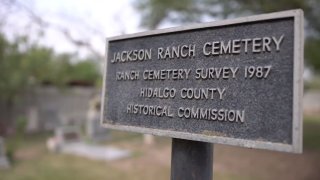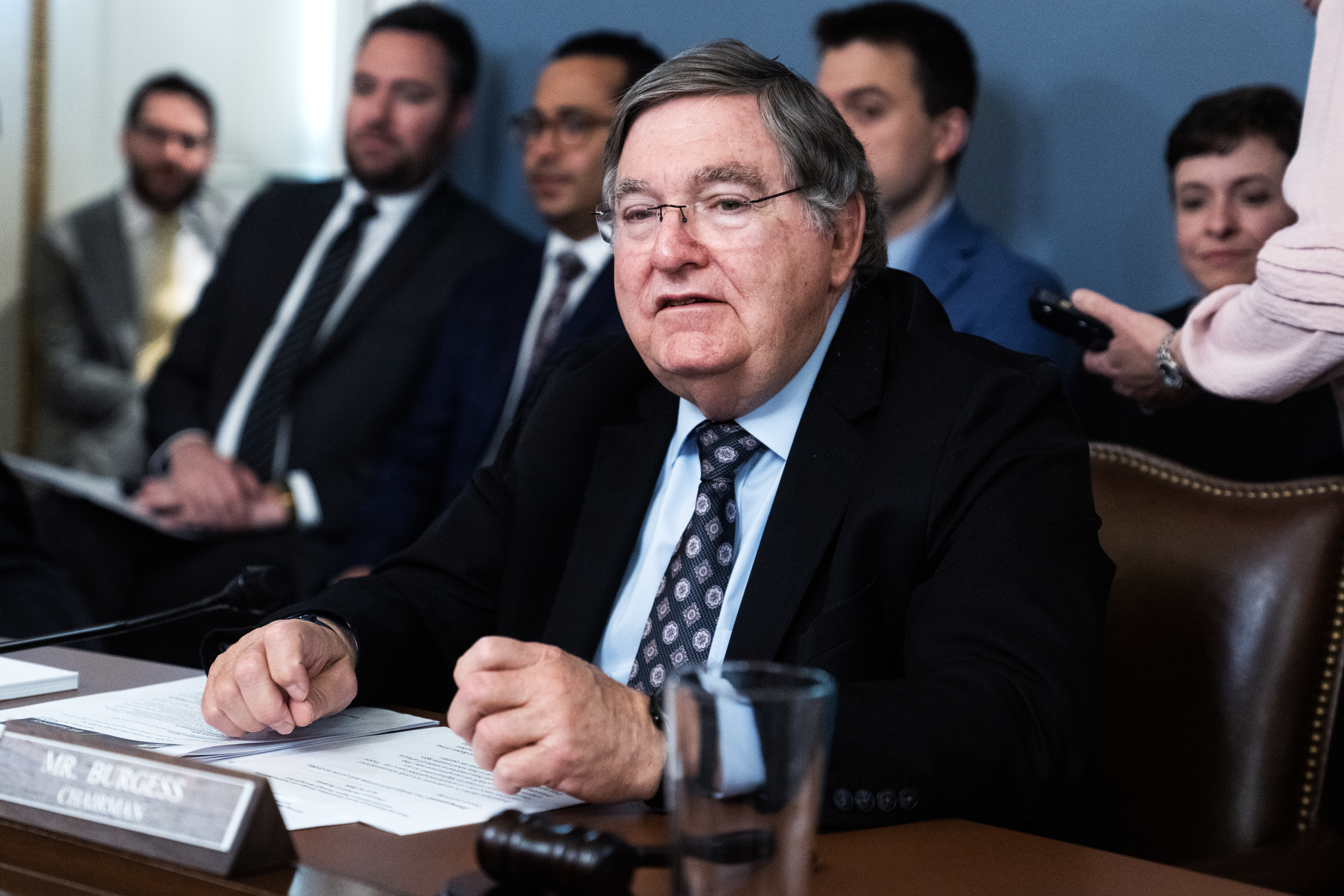
About a year ago Sylvia Ramirez and her family thought they had saved a historic church and cemetery tied to her ancestors from border wall construction that would essentially "wall" them off from the rest of the country.
Now, more than a year after tireless efforts to save their cemetery and church, which included working with congressional members to introduce legislation that would support their cause, Ramirez tells The Monitor that the property is once again in danger of being bordered off by planned construction.
She learned through her attorney mid-August, as part of ongoing litigation with the government over construction near the land in San Juan, that the government would begin building a border wall on the current levee that leads into the property by the end of the month.
The property, the Jackson Ranch Church Cemetery in San Juan, is a designated historical marker known as the first Spanish-speaking Methodist Church and is the resting place for many of Ramirez's relatives.
Adjacent to this property lays the Eli Jackson Cemetery, part of, but separate to the church and cemetery. Ramirez only speaks for the Jackson Ranch Church Cemetery.
The fight against construction near the land began in September 2018, when Ramirez and her brother Ramiro Ramirez -- descendants of abolitionist Nathanial Jackson, who moved to the Rio Grande Valley in the late 1850s -- began a campaign to bring awareness to the public about the potential negative impact border wall construction near the historic church and cemetery would cause.
At the time it was believed the construction would rip through the church and cemetery, but discussions with U.S. Customs and Border Protection and subsequent litigation spared the area from construction -- until now.
Texas News
News from around the state of Texas.
Last June, U.S. Reps. Filemon Vela, D-Brownsville, Vicente Gonzalez, D-McAllen, and Henry Cuellar, D-Laredo, announced they had secured language in the Fiscal Year 2020 Homeland Security Appropriations bill that would block border wall construction in several areas, including around the historic church and cemetery.
As a result, in June 2019, CBP officials confirmed in a statement that it would try to "avoid" the cemetery located in San Juan, while still adhering to "U.S. Border Patrol's operational requirements."
It would be another six months before Ramirez, who was at the time reluctant to express relief over the proposed bill, received anything in writing; finally with wording in the December 2020 appropriations bill that stated the government would "avoid" disturbing historical landmarks, including cemeteries.
Recently, the relief Ramirez once felt regarding the construction dissipated after her husband, and other relatives who routinely check on the properties, reported seeing heavy machinery appear to be excavating land near the cemetery and church.
On Friday, Aug. 14, Ramirez observed for herself what appeared to be clearing of land on the north side of the property.
"Frankly, it's a disappointment that CBP never has contacted us directly about this. About what's going on," Ramirez said. "We have to see it with our own eyes. And so that's disappointing and upsetting to be honest."
She said according to the information from her attorney, the border wall will be built on the levee which sits on the north side of the two sites -- essentially walling them off from the rest of the country.
"We do not want to be walled off from the rest of the United States," Ramirez said.
She said she doesn't consider the fact that the construction won't touch the actual church and cemetery a compromise, or assuring.
Ramirez said according to the information provided, the construction will not go through either of the two cemeteries, and that no part of the cemeteries will need to be used for the project.
She said that according to her attorney, the government will have an environmental and archaeological team on site during working hours to supervise the work and to ensure that no gravesites are disturbed.
"Even if the border wall and its enforcement zone do not disturb or touch the cemetery, and the church, it will still impact them, by its very presence," she said.
Though now there's a clearer picture as to when the construction is set to begin; Ramirez said a lot remains unclear, such as where the enforcement zone would be placed, logistical issues with regard to a proposed automated gate, access for people who live next to the church, and its congregates, to name a few.
Ramirez, who has worked with members of congress in the past with regard to the issues with wall construction, said she is in contact with Congressman Vela's office regarding the recent news.
She said she hopes speaking to Vela's office will result in an official response from CBP officials.
She said she is asking for the same consideration given to La Lomita Chapel in Mission, which was included in the bill. But unlike Ramirez's cause, La Lomita is unlikely to face the same fate due to aggressive litigation on part of the church.
"We want the same protections that La Lomita has. We're glad they have those protections, we want them also," Ramirez said.
Ramirez said she planned on attempting to make contact with CBP via email in reference to her attorney's recent information regarding the looming construction.
CBP officials did to respond for comment regarding Ramirez's claims.



